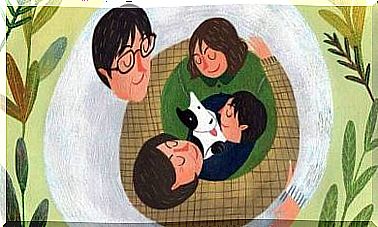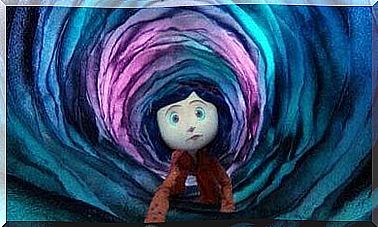Could Be Worse, Is It Really Useful To Say?

We all found ourselves in a difficult situation such as the loss of a job, the end of a story, a disappointment, etc. Speaking about it with a loved one, the famous phrase “Don’t worry, it could be worse” probably escaped . It is a very often used interlayer, and today we want to investigate its real weight.
Regardless of whether or not it may be heartening, the habit of comparing our situations with those of others is a fact, they serve as a reference. The knowledge that someone else is going through a complicated period, perhaps more than ours, can bring relief. As if our mind was desperate for a foothold to be able to say to itself “all in all, I’m not so bad”.
Well, it might surprise you to know that the way of saying “it could be worse” has been analyzed in the field of psychology. We know that this is an adaptation strategy that we often resort to, but this “lifesaver” has nuances that should be kept in mind.

It could be worse, it could rain
We are returning home after work and the car breaks down. We get out, put the triangle on the ground, call the tow truck and wait. A little later we tell ourselves that it could be worse. It might rain. And so we console ourselves.
Another example: we go to the doctor for a medical examination and we are diagnosed with diabetes. We are frightened, but the doctor, smiling, tells us that it is nothing, that the situation could be worse, that there are much more serious diseases.
The two examples depict two very different situations. In the first, thinking that the situation is not the worst gives us relief. In the second case, such a comparison only underestimates our condition.
Telling us that there are people in more complicated and harsh situations than ours doesn’t help. On the contrary, it diminishes the particular reality of an individual, risking to trigger a sense of guilt, as if it were not in the right to feel bad compared to others. It is therefore neither logical nor ethical to use these comments.
It could be worse, the phrase that belittles our experiences
Helping and supporting others without letting them down is a tall order. When we go through a bad time, we don’t expect anyone to solve our problem or eliminate our pain. We just want understanding and closeness.
Yet, we are often inundated with inadequate comments, just as “it could be worse”. If we have a car accident and hurt our neck, being told that worse could happen will only generate more anguish and anxiety about getting back behind the wheel.
If we lose our jobs, it is no consolation to know that we may find ourselves in even more difficult conditions. Such comments detract from the experience we are experiencing. It is a way of invalidating our emotions and our reality by comparing it with something that does not concern us and that cannot and should not give us comfort. The fact that others are worse off will not make us feel better.

The danger of vitimization
According to a study conducted by Drs Shelley Taylor and Joan Wood, at the University of Texas, an interesting fact emerged. In our everyday life, it is not others who tell ourselves more often that it could be worse , but ourselves.
Research has shown that this psychological coping strategy doesn’t always help. Indeed, if we are experiencing a serious situation, we risk making our role as victim chronic. Let’s take an example: imagine a teenager who was bullied for the entire duration of middle school.
The young man consoles himself by thinking that things could have been worse: he has never been physically attacked. He feels relieved that neither the professors nor his parents have found out what happened to him. What the boy thinks is a worse prospect, in reality it is not.
With this mechanism he only demeans his personal situation. He does not face his suffering because he underestimates it, applying a defense mechanism with which to evade the trauma. Far from finding a solution, this mental strategy makes his role as a victim chronic.
In conclusion, there are very few circumstances in which repeating that “it could be worse” helps. We do not have to dodge the particular suffering of every single situation, however insignificant it may seem.
Any concern, any difficulty, deserves to be recognized and listened to. If we are unable to give due weight to the suffering of others, it will be very difficult to be supportive.









